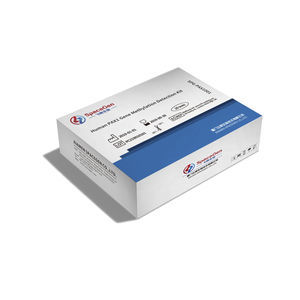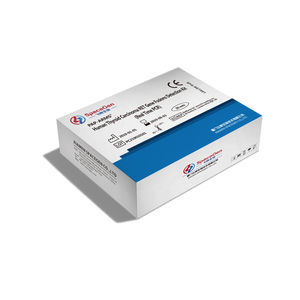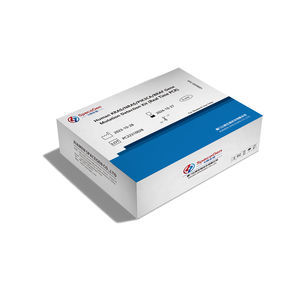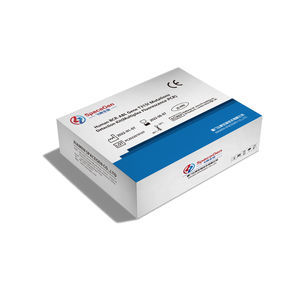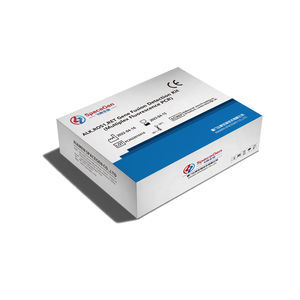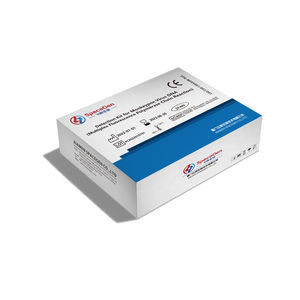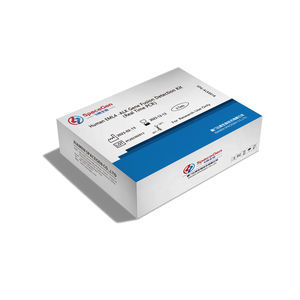

- Company
- Products
- Catalogs
- News & Trends
- Exhibitions
Breast cancer detection kit Rucsen®oncologyfor genesclinical
Add to favorites
Compare this product
Characteristics
- Applications
- for breast cancer
- Application field
- oncology
- Tested parameter
- for genes
- Sample type
- clinical, tissue
- Analysis mode
- fluorescence, for real-time PCR
Description
Breast cancer is the most common cancer in women and one of the leading causes of cancer-related deaths among women. The 21-gene test for breast cancer is a quantitative detection of mRNA expression levels of 21 genes associated with breast cancer. Specific algorithms are used to convert gene expression levels into a recurrence score (RS), and the score is used to determine whether breast cancer patients need adjuvant chemotherapy. The results of this test can provide information on prognosis, recurrence, and guide treatment.
In the updated NCCN Clinical Practice Guidelines for Breast Cancer (Version 3, 2018), which references the TAILORx study and previous research, the 21-gene test is now strongly considered for invasive breast cancer. The RS grading system can identify patients with a low risk of recurrence who can be spared from chemotherapy and avoid overtreatment.
FEATURES & ADVANTAGES
1. Simple and Efficient: Using high-efficiency reverse transcriptase, the reverse transcription can be completed in 30 minutes.
2. Accurate and Reliable: Based on real-time fluorescence quantitative PCR platform, using Taqman probe method, high specificity and sensitivity.
3. Professional and Convenient: Professional calculation formula, directly calculate the RS value, simple and convenient.
DETECTION PROCESS
1. Nucleic Acid Extraction
3. Amplification
4. Data Analysis
DETECTION SIGNIFICANCE
Patients with ER+ and HER2- invasive breast cancer can evaluate the risk of recurrence and the benefit of chemotherapy through 21 gene detection,
Catalogs
No catalogs are available for this product.
See all of SPACEGEN‘s catalogsRelated Searches
- Assay kit
- Blood assay kit
- Immunoassay assay kit
- Plasma assay kit
- Infectious disease detection kit
- Analysis medical software
- Molecular test kit
- Whole blood detection kit
- Respiratory infection test kit
- Clinical assay kit
- Optical assay kit
- Fluorescence assay kit
- Viewer software
- Real-time PCR test kit
- Research assay kit
- Laboratory software
- Windows medical software
- Oncology test kit
- Laboratory detection kit
- Cell assay kit
*Prices are pre-tax. They exclude delivery charges and customs duties and do not include additional charges for installation or activation options. Prices are indicative only and may vary by country, with changes to the cost of raw materials and exchange rates.



